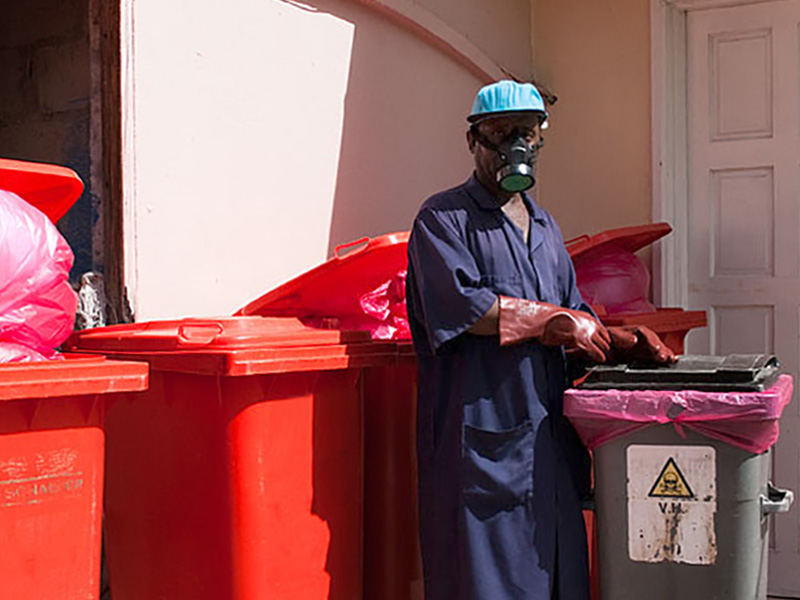After a country-wide assessment, management4health developed recommendations to improve the Health Care Waste Management (HCWM) in Malawi. The assessment included the visit of more than 15 facilities, collection of data on HCWM and meetings with more than 15 key stakeholders.
The recently concluded report of the Global Fund Office of Inspector General (OIG) in Malawi indicated a significant gap in waste management which was causing difficulties for healthcare facilities. Most healthcare facilities in Malawi produce pharmaceutical waste (PW) such as expired or contaminated medicine. If not handled properly, pharmaceutical waste can have hazardous properties and adversely affect public health and the environment.
After further assessment of healthcare facilities and central storage centers, focusing on PW at district levels with a mix of urban and rural, m4h identified areas of improvement concerning the handling, disposal and treatment of pharmaceutical waste. Based on this assessment, the following optimisation measures were identified:
- Development of clear guidelines for PW management
- Evaluation of solutions to reduce the backlog of expired medicine in facilities
- Definition of standard practices for PW disposal in Malawi including incineration, environment threatening open burning and returning PW to the supplier
- Consideration of measures to reduce the distances between some hospitals and their associated health care facilities
To help organize and improve standardized pharmaceutical waste management practices, management4health has assisted the Ministry of Health of Malawi (MoH) by developing Pharmaceutical Waste Management Guidelines and a one-year costing plan which were presented during a one-day workshop with Chemonics and USAID. These guidelines include sections such as waste minimization, reverse logistics, segregation depending on disposal methods, dividing storage facilities by the levels of hazardous waste, transportation precautions and many more.
The one-year costing plan to give facilities options to reduce costs takes waste collecting, waste treatment and transportation costs into consideration. This costing plan includes two scenarios where one focuses on central disposal by making Lilongwe the central hub and the other focuses on realizing PW disposal in selected regional hubs within the northern, central and southern regions.
By putting these improvements into effect the threat towards the environment, public health as well as waste handlers and medical staff, resulting from the mishandling of PW will be reduced.



